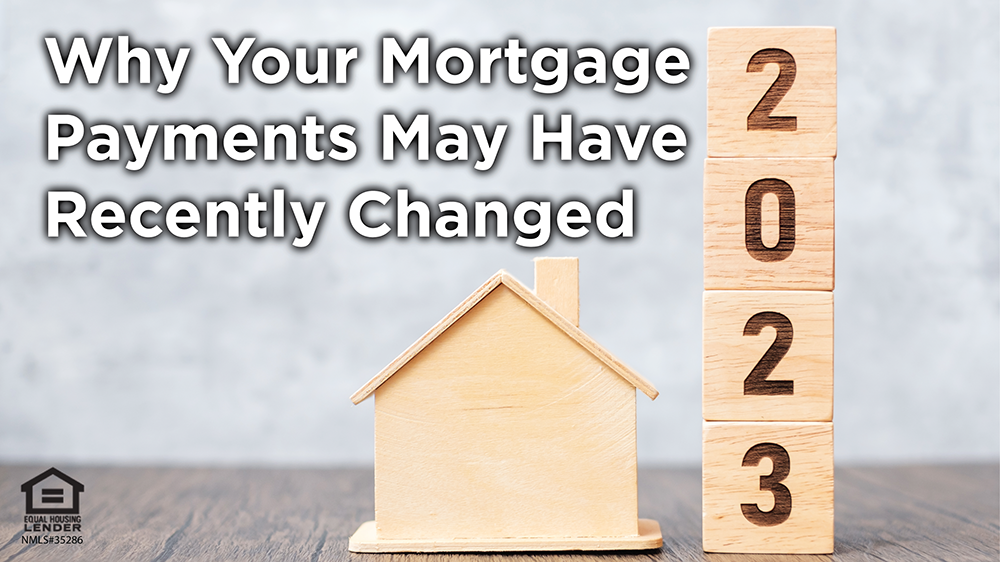
Why Your Mortgage Payments May Have Recently Changed, Understanding How Your Property Taxes Affect Your Escrow Account

When it comes to property taxes, the amount each homeowner pays annually can vary depending on local tax rates as well as your property’s assessed value.
How Your Property Taxes Are Determined
Reassessment is the periodic review and revaluation of a property to determine its value for tax purposes. An assessor or hired contractor will analyze the market value of your property to determine its tax value.
State law determines how often a property is reassessed, despite the actual reassessment being handled at the local level. Most states will reassess properties every one to 10 years.
A reassessment may result in an increase, decrease, or no change in your property taxes.
Higher property taxes, however, are typically the result of local budget increases. Because property taxes are the main source of revenue for local schools, an increase in educational budgets typically translates to higher tax rates.
What to Know About Your Mortgage Escrow Account
Many borrowers pay property taxes along with their mortgage payments via an escrow account. Your lender or servicer deposits your monthly property tax payment into an escrow account, and when property taxes are due in your county, your lender or servicer uses the funds in that account to pay the taxes on your behalf.
The amount required for your escrow account is a moving target, as your property taxes can change from year to year. Your servicer will estimate your escrow payments for the next year based on the current and/or previous billing cycles. To ensure there are adequate funds in your escrow account, many establishments require a minimum of two months’ worth of extra payments to be held in the account.
How Property Taxes Affect Your Mortgage Payment
Your lender or servicer analyzes your escrow account annually to make sure they’re not collecting too much or too little. If they’ve collected more money than was needed for your property taxes, you’ll receive an escrow refund.
If your lender or servicer has collected too little, however, you’ll need to cover the difference. You may be given options to make a one-time payment or increase the amount of your monthly mortgage payment to make up for the shortage in your escrow account.
It’s important to note that your servicer will only analyze your escrow account on an annual basis. If you receive notice that your taxes have increased, you can call your servicer and request to increase your monthly escrow payment early to avoid coming up short.
Under certain circumstances, some borrowers opt to waive escrow for their taxes, and manage their property taxes on their own. Although you’ll sacrifice the convenience of having one easy monthly payment to manage, you will be able to avoid any potential shortages.
Closing Thoughts
While it’s an amazing time to own real estate as property values continue to rise, some borrowers may be surprised by recent increases in their property taxes this year.
We’re here to provide our clients with strategies to manage and avoid any shortages in their escrow accounts, as we believe in empowering our borrowers to create an optimal budget blueprint for all of their financing needs. Give us a call or visit us online today.